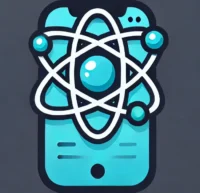The debate between React Native and Flutter continues to dominate the mobile app development space in 2025. Both frameworks are powerful tools for building cross-platform apps, but each has its unique strengths and trade-offs. Whether you’re a developer, business owner, or tech enthusiast, understanding the differences between these frameworks is crucial to making an informed decision.
In this blog post, we’ll compare React Native and Flutter across key parameters like performance, development experience, community support, and use cases to help you choose the right framework for your project.
React Native Overview
Developed by Facebook (now Meta), React Native enables developers to build cross-platform apps using JavaScript and React. It allows for a single codebase to create apps for Android and iOS while maintaining a near-native performance.
Key Features:
- Hot Reloading for faster development.
- Large library ecosystem for customizations.
- Flexibility to integrate native modules.
Flutter Overview
Flutter, developed by Google, is a UI toolkit that uses the Dart programming language. It emphasizes expressive, beautiful UIs and is known for its “write once, run anywhere” approach.
Key Features:
- Widgets-first architecture for custom UI.
- Native performance using Dart’s compiled code.
- Built-in support for Material Design and Cupertino (iOS-style) widgets.
Comparison: React Native vs Flutter
| Feature | React Native | Flutter |
|---|---|---|
| Programming Language | JavaScript | Dart |
| Performance | Good (depends on native modules) | Excellent (compiled to native code) |
| UI Components | Uses native components | Custom, consistent UI widgets |
| Community Support | Larger, more mature community | Growing rapidly |
| Learning Curve | Easy for JavaScript developers | Steeper due to Dart |
| Hot Reload | Supported | Supported |
| Ecosystem | Extensive, but depends on native | Comprehensive, self-contained |
1. Performance
Flutter outperforms React Native in raw performance because it compiles directly to native code. However, React Native delivers excellent performance for most use cases and allows the integration of native modules when needed.
2. Development Speed
- React Native: Its Hot Reload feature, along with JavaScript’s familiarity, makes development quick and intuitive.
- Flutter: Although Flutter also supports Hot Reload, Dart’s learning curve can slow down new developers.
3. UI Design
- React Native: Relies on native UI components, giving apps a natural look and feel. However, achieving consistent design across platforms can require extra effort.
- Flutter: Offers a widget-based architecture with a consistent design on all devices, but it may not always match the platform’s native look.
4. Community and Ecosystem
React Native’s older and more extensive community provides numerous third-party libraries and plugins. Flutter, while newer, has a fast-growing ecosystem backed by Google’s robust support.
5. Use Cases
- React Native:
- Apps requiring frequent updates (e.g., Facebook, Instagram).
- Teams with JavaScript expertise.
- Apps needing heavy use of native device APIs.
- Flutter:
- Apps with highly customized UIs (e.g., Google Ads, Reflectly).
- Developers looking for a cohesive ecosystem.
- Teams starting from scratch without language biases.
When to Choose React Native
- Your team already knows JavaScript or React.
- You need an extensive library ecosystem and third-party plugins.
- You want faster initial development with native look-and-feel.
When to Choose Flutter
- You prioritize consistent, expressive UIs across all platforms.
- You’re building a new team and can train developers in Dart.
- You need superior performance for animation-heavy apps or games.
Final Verdict
There’s no one-size-fits-all answer to React Native vs Flutter. React Native is a great choice for JavaScript developers or apps that need close integration with native components. Flutter is ideal for performance-critical apps with a consistent UI across platforms.
Evaluate your project’s requirements, your team’s expertise, and long-term goals before making a decision. Both frameworks are excellent options for cross-platform development in 2024.
FAQs
1. Can React Native and Flutter be used for web apps?
Yes, both frameworks offer web support, but Flutter’s web implementation is more robust.
2. Which framework has better job opportunities in 2024?
React Native currently has a broader job market due to its maturity, but Flutter is rapidly catching up.
3. Is Flutter better for animations?
Yes, Flutter’s widget-based architecture makes it more suited for complex animations.
